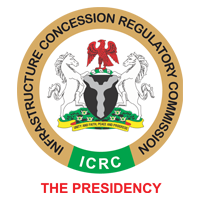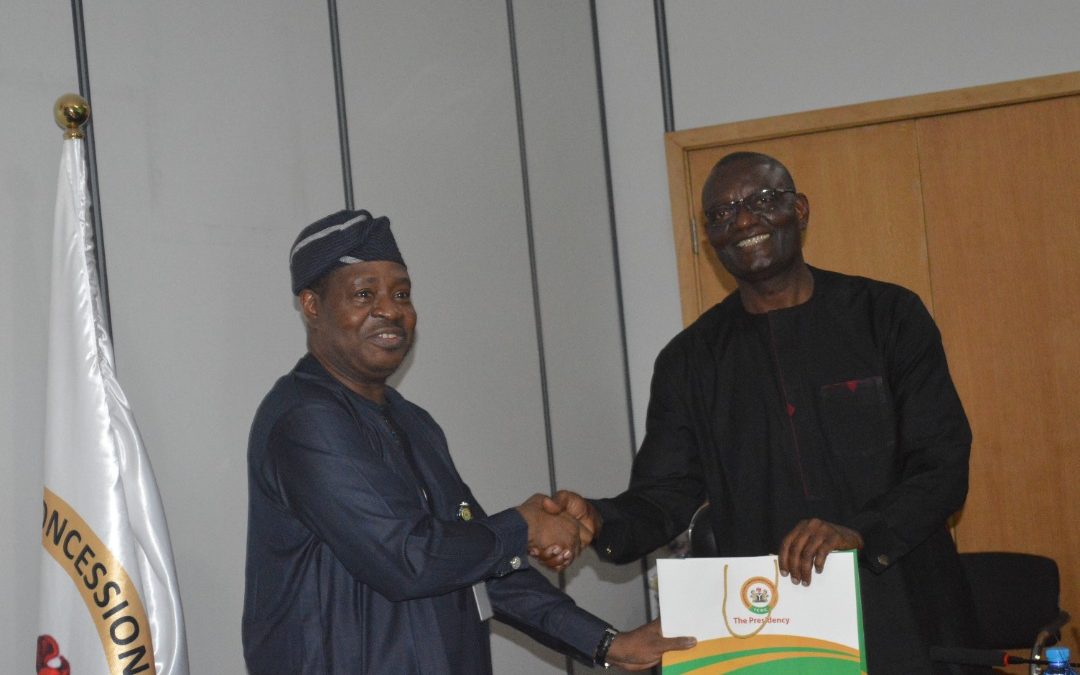ICRC receives Shippers’ Council delegation, harps on PPPs to bridge infrastructure gap
PRESS RELEASE
March 28, 2022
ICRC receives Shippers’ Council delegation, harps on PPPs to bridge infrastructure gap
The Infrastructure Concession Regulatory Commission (ICRC) has emphasized the need to utilize Public Private Partnerships in bridging the Infrastructure gap in the country.
This is even as it has identified PPP models as a strategy that could be deployed in the transportation of goods to reduce over reliance on trucking which damages road infrastructure.
Acting Director General of ICRC, Michael Ohiani disclosed this when he received a delegation from the Nigerian Shippers’ Council led by the Council’s Executive Secretary, Mr. Emmanuel Jime.
While commending the Council for its efforts at adopting PPP models in its transportation projects, he pointed out that transportation of goods across Nigeria had been majorly done using roads.
He said that road transportation accounted for more than 70 percent of cargo movement in Nigeria.
Ohiani said that the transportation of goods majorly by roads using trucks is fraught with various challenges including accidents, breakdown of trucks, illegal parking, congestions, as well as the wear and tear of the road.
He said that to address these challenges, the Federal Ministry of Transportation through the Nigerian Shippers’ Council was developing Inland Container Ports and Vehicle Transit Areas using the PPP model.
“This is in line with the Federal Government’s policy direction to address the infrastructure deficit in the country.”
“The PPP model remains the best funding option for the development of these projects under which the private sector provides the funds and runs the project while the federal government provides the regulatory framework,”.
He said that in deploying the PPP projects, that the government should make it mandatory for trucks and other articulated vehicles to make a compulsory stop at the vehicle transit areas after traveling for a period of time not exceeding 6 hours.
Making a presentation, the ICRC team pointed out that the lack of funds had made it imperative for private sector to get involved in infrastructure development.
It showed that a 30-year investment programme which had been outlined by the government, will require 48 percent of private sector funds.
“If you look at the energy sector for instance, $1 trillion which represents 33 per cent of the entire outlook will come from the private sector.
“Interestingly, if we look at the transport sector, 25% of the required investment with represents about $775 billion will come from the private sector.
“There are clear infrastructure deficit which remains a big challenge and underscores the fact that we need to aggressively work on up scaling our infrastructure assets.
“We have a funding deficit of about $23 billion per annum which will translate for instance in the next five years to about $100 billion – it is either we go through the national budget or we focus on the private sector as a means of raising funds”.
According to the presentation, government agencies like the Shippers’ Council as well as state governments are encouraged to initiate PPP projects and go through the processes of getting it approved by the Federal Executive Council (FEC).
On his part, the Executive Secretary of the Shippers’ Council, Emmanuel Jime commended the ICRC for granting the Council the opportunity to interface.
He said that from the presentations and comments, the Council was in agreement with everything that the ICRC had said in terms of bridging the infrastructure gaps through PPPs.
“Every single thing that you have said to us and what we have received are essentially what we are also in agreement with and we believe that one of the greatest development challenges in our time is infrastructure deficit.
“It can be argued that there is a positive relationship between the infrastructure stock and of course the economic development of any nation.
I agree that the competing public needs coupled with dwindling resources would imply that there is not enough resources for government to undertake all development projects on its own.
So clearly, the module of development that engages the private sector is one to be encouraged and all of us who serve in the public service have also adopted it.
He said that the Council has been promoting a couple of transport infrastructure, adding that is was part of the core mandate of the Shippers’ Council to do so.
He added that most of the projects were being developed using PPP models. END.
Signed:
Manji Yarling
Acting Head,
Media and Publicity
ICRC




